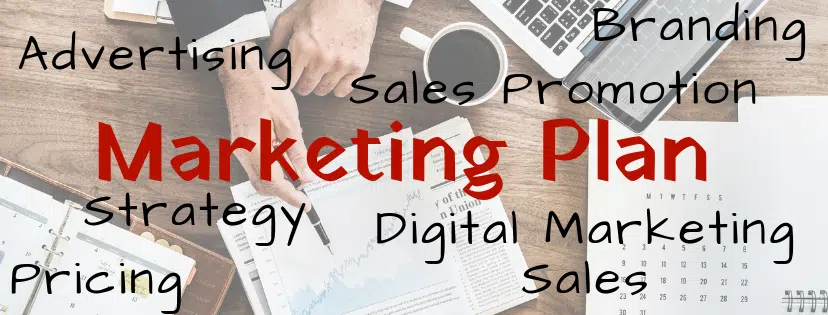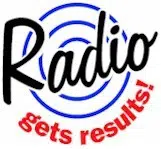People don’t hate advertising; they hate boring advertising; they hate predictable advertising. They hate the timewasting, life-sucking sound of too many words wrapped around too small an idea. They hate AdSpeak. But they love entertainment. Learn to purchase your customer’s time and attention and goodwill with delightful, interesting, entertaining ads. (Author: Roy WIlliams)


Special Rates & Offers
Let us help you to develop a low cost and personalized strategy that will deliver you results for your business. To find out about our special rates and offers, submit the simple form below.
Let us help you combine your message with the Power and Reach of WTSA Radio
Why Should You Advertise? Here are 10 Good Reasons…
My store has been here forever… Everybody knows about us… We’re doing just fine without advertising… I have such a great location, I don’t need to advertise… Don’t kid yourself. It’s virtually impossible to build a successful businesses without advertising. There are many good reasons to advertise, including attracting new customers, increasing sales and business growth. Below we present 10 of the best (courtesy of the Radio Advertising Bureau).
1) You must advertise to reach new customers.
The market changes constantly. New families moving into the area mean new potential customers for you, or for your competition. Customer’s income levels are constantly changing, which means changes in lifestyles, needs and buying habits.
2) You must advertise continuously.
Shoppers don’t have the same store loyalty they once had. Automobiles give shoppers mobility and freedom. The National Retail Merchants Association says “mobility and non-loyalty are rampant. Stores must promote to get former customers to return and to attract new ones.”
3) You must advertise to influence shoppers throughout the buying cycle.
People often go from store to store comparing prices, quality and service. Advertising must reach them consistently through the entire decision-making process. For example, the average new car purchase is a 13-week cycle. Your name must be fresh in their ears and minds when they ultimately decide to buy.
4) You must advertise because it pays off over a long period.
Your advertising today is selling customers whose buying decision may be weeks away. Advertising gives you a long-term advantage over competitors who cut back or cancel advertising. A 5-year study of more than 3,000 companies found that advertisers who maintained or expanded advertising over the five years saw their sales increase an average of 100%.
5) You must advertise to generate more store traffic.
Continuous store traffic is the first step toward sales increases and expanding your base of shoppers. For every 100 items shoppers plan to buy, they make at least 30 unanticipated “in-store” purchases.
6) You must advertise to make more sales.
Advertising works! Businesses that succeed are almost always strong, steady advertisers. Look around – you’ll find the most aggressive and consistent advertisers are almost always the most successful.
7) You must advertise because there is always business to generate.
As long as you’re open for business, you’re got overhead to meet and new people to reach. Advertising will generate customers now, and in the future. Your doors are open. Even the slowest days produce some sales.
8) You must advertise to keep a healthy positive image.
In today’s competitive marketplace, rumors and bad news travel fast. Advertising corrects misleading gossip and punctures “overstated” bad news. Advertising that is vigorous and positive can bring shoppers into your store regardless of the economy.
9) You must advertise to maintain store morale.
When advertising and promotion budgets are suddenly cut or cancelled, salespeople may become alarmed or demoralized. Positive advertising boots morale. It gives your staff strong, positive, motivational support.
10) You must advertise because your competition is advertising.
There are only so many consumers in the market ready to buy at one time. You must advertise to keep your share of customers or you will lose them to the more aggressive competitors.
 Why Radio?
Why Radio?
If you’re going to advertise (and you should), it makes sense to spend your advertising money where you get the most results… Radio! Here are 12 great reasons why radio is your best choice:
1) Radio sells with immediacy.
The research has proven that radio advertising regularly reaches consumers within two hours of their largest purchase of the day. There’s no better time to reach customers than on their car radio while they are driving to do today’s shopping! For those who are considering a purchase your radio advertising can be used as a great reminder medium to fight procrastination and convince them to buy now.
2) Radio sells everywhere.
Radio is truly the best mobile medium. Whether your potential customer is in their car, at work, or at play, radio is there. It’s the advertising force that your customers take with them wherever they go. No Media Reaches More People More Often For Less!
3) Radio sells with intimacy.
In your personal life, when you have something important you wish to communicate to someone, which method would you prefer? To show them a picture? To write to them? Or would you prefer to talk to them using the intimacy and emotion of the human voice? Radio sells with intimacy by using the human voice to convince. In fact host endorsements typically drive a 400% increase in listener response over non-endorsed spots.
4) Radio can make your ad shine with “Theatre of the Mind”.
The impact of your ad is magnified by the emotional and motivating power of audio. Research has demonstrated that audio messaging has more impact on consumers than either video or print ads. You can have a 100-piece symphony orchestra in your ad, an elephant, a chorus, a laughing child or a love song ..radio can do all of that. With word pictures and emotion-evoking sounds, radio’s theatre of the mind makes you ad stand out from the rest!
5) Radio escapes advertising’s clutter.
When you look at today’s newspapers you’ll find that they average 2/3 ad copy to 1/3 editorial copy. In comparison TV spends about 1/3 of its time on advertising. Today’s radio devotes less than 1/5 of its time to ads with approximately 10 minutes of advertising per hour. Radio is definitely the un-cluttered medium.
6) Radio is the cost effective medium.
Everyone business owner knows that newspaper ad rates are up (even though circulation is down). TV ad rates have also become more expensive (even though viewership is down). Radio advertising costs, on the other hand, have risen less than any other major form of advertising.
7) Reach is always good, but it’s frequency that really sells.
Newspaper and TV are both considered reach medias – they reach varying numbers of people. Psychologists will tell you that consumers need to be exposed to an advertising message at least three times before it begins to really penetrate. When it comes to Newspaper and TV most local businesses cannot afford the necessary three-times-plus frequency that effective advertising demands. The exception is radio advertising. Radio is the medium you can afford for both reach and frequency.
8) Radio’s ability to offer targeted advertising sells.
Because radio offers a variety of formats it allows you to pinpoint your advertising on the station, or stations, that best match your customer’s interests. You can market to the age, gender and type of customer who will most want your products or services. You cannot, however, pinpoint advertising in the broad-reach, scattershot newspaper and TV media forms. Radio’s unique targeting ability inevitably saves you money and gets you the customers you want.
9) You’re always on the front page with radio.
With radio advertising you are always front and center in the listener’s attention span when your ad is on the air. You’re ad is never buried on page 37 and you’ll never find your advertisement surrounded by your competitor’s ads. With radio advertising, you are always on the front page.
10) Radio is an active medium in an active society.
When it comes to passive forms of advertising you find they simply list merchandise or tell you where a product is available. Radio is an active medium capable of stirring emotion, creating demand, and selling your product or service. Today’s hotly competitive marketplace demands an active medium that draws your customers in and inspires them to buy!
11) Radio is the most cost-effective branding media available.
Radio’s strength is brand building which helps to increase your customer base. Compared to the cost of other local media radio advertising will reach a similar sized audience with the same frequency at a fraction of the cost. It’s the dominant out-of-home media with the ability to reach 93% of your local consumers each and every week. When Radio is included in your plan it boosts brand recall and brand preference.
12) Radio advertising engages your consumers more than any other media.
In fact, the engagement levels for radio advertising (the percentage of people who actively pay attention to the ads) is by far the highest of any mass media.
To Learn More How Radio Can Help
Grow Your Business Click Here
Which commercial length is most effective? This is a difficult question to answer, as spot length must be dictated by the goal of the message. Allowing an ad budget to dictate the length of the ad is the most common mistake made by advertisers. Never try to get by with :15s and mentions when :30s or :60s are called for to adequately convey your message.
If your budget is limited, reduce Reach instead of cutting the length of your ad, or buy a less expensive time of day or advertise on a smaller station. Ad messages must always be exactly as long as they need to be or nothing else will matter.
Following are some parameters to keep in mind when determining what length spot you need to create. Additionally, keep in mind that for some ad categories, commercial length may be pre-determined based on boilerplate disclaimers required by law.
:60 Ads
- For complex messages to avoid leaving doubts and questions
- To include specific details to help persuade – more believable than generalities
- For a business category that’s new and not easily understood – to create realization of need before selling your solution
- For highly entertaining ads geared to inspire consumers to “like you better” – effective for generic businesses and commodities
:30 Ads
- To make an easy-to-understand offer for a product or service that is clearly understood
- To make a single point in an ad
:15 Ads
- To convey an incredibly powerful, simple message
- To reinforce simple name recognition to make customers think of your name when your are the sole advertiser in your business category
Mentions (:10 or less)
-
- Use frequently to generate top-of-mind awareness when selling a commodity in a crowded market arena
- To add additional frequency to a schedule that is delivering barely sufficient frequency of your :60 or :30 message
Source: “Radio Ads: How Long Should They Be?” by Roy Williams, founder and president of The Wizard of Ads – entrepreneur.com, 09/13/02
Have you ever said the following: “I tried radio but it didn’t work”? Many business owners have that complaint. The fact is radio is just as effective (if not more effective) as any other advertising medium. The reason a spot (commercial) fails is more often due to one or more of these five mistakes given below.
Mistake One: Phone Numbers.
Especially if more than one are given. Now I understand that if your phone number is the ONLY WAY a customer can possibly do business with you then you must have a phone number in your commercial. But for everyone else – phone numbers are a waste of time, which is something you can’t afford to do with just 30 or 60 seconds of commercial time.
Why? Because most people are listening to their radio in their cars or at work. In both cases trying to remember or even write down a phone number is expecting way too much from the listener. And if, as some advertisers do, you have more than one phone number the listener just isn’t going to bother at all.
The best solution is to not give out your phone number at all, but instead offer a very compelling reason why people should seek your business. They’ll find it if they’re interested. Remember there are many ways to find a business’ phone number… phone books, the internet, even calling the radio station (many stations keep lists of current advertisers handy with contact info).
Mistake Two: Price points.
If you think it’s hard for a radio listener to remember a phone number just try adding a bunch of other numbers. I’ve heard many business owners tell me, “Well so what if they don’t remember the prices? This way they’ll know we have a lot of items on sale!”
The problem here is you are again assuming that the listener cares enough to not totally tune out all those price points. That’s a very dangerous assumption. Do you ever hear the radio personalities reciting lots of numbers or price points when they’re talking (outside of reading commercials)? No. Why? Because they know that the typical radio listener expects to hear clear and concise information. Not a lot of numbers that don’t relate to anything.
You’re better off keeping price points in your print advertising where people can take the time to look over all the information. For radio spend your time giving people compelling reasons to do business with you instead of sale prices.
Mistake Three: Confusing locators (the way you describe where your business is located).
“We’re located just a half mile off Interstate 512 in the Gas-Lamp Strip Mall, 2899 West 333rd Street, with convenient free parking four days a week.”
Again, you’re expecting a lot from your listener.
Don’t do lengthy directions. State your location as simply as possible:
“Downtown at the corner of State and Lake.”
“Just off I-512 at the Big Town Exit”
What about street address numbers?
Unless your address can be seen perfectly from at least a half a block away, don’t use it. Most businesses don’t have street numbers on their doors anyhow or if they do it’s so small you can’t read it until you’re right in front of it.
The best solution for a locator? Direct people to your website. You can insert a Google Map or Yahoo Map locator that can give anyone precise details on how to get from where they are to where you are.
Mistake Four: Too many advertising cliches = Major turnoff.
“Friendly Professional Staff”
“Storewide Savings”
“Number One In Customer Service”
“Dependable and Trustworthy”
“The Best Prices”
“We Will Not Be Undersold”
There are dozens more of these tired cliches. Why are they tired? Because you can hear them in radio commercials right now, and if you were to get in a time machine and go back 50, 60, 70 years you’d hear them in commercials from then. They’re worn out because everyone uses them and to most consumers they’re pretty much meaningless.
If everyone is using them then what makes them special? Nothing. If every business is using them then what sets you apart and helps a listener remember who you are? Nothing.
The old adage from Lenny Bruce says it best: “If you have to tell them you’re hip, you’re not.” That holds true for all of those advertising cliches. There is a basic expectation of service from all businesses that includes most of those above cliches. You can’t be in business without meeting those basics, and everyone knows it.
So why waste your advertising time with it?
Instead give people meaningful (personal) compelling reasons to do business with you. And by personal I mean your customer. What are your best customer’s personal reasons for doing business with you? Find that out and talk about that in your commercials. You’ll be amazed at the difference in response.
Mistake Five: Not being convenient.
I don’t mean in terms of hours or location, though those are definitely factors. But more important, does your radio commercial (or any of your advertising) make it hard for people to get what they want?
“Mention this ad for a free can of cheese whiz”.
“Bring in the coupon from last Sunday’s newspaper”.
“The first 12 people to call in the next five minutes get a five percent discount”.
Making people do extra work to get something is only worthwhile if the payoff is incredible (i.e. “The first caller right now gets one million dollars!”). Very few customers will actually care enough to jump through hoops to get a five percent discount or even a 15 percent discount. But more importantly you’re telling the vast majority of potential customers that they have to do something extra besides just showing up at your store. And most people don’t want that extra hassle. What you should be doing is rewarding them equally for showing up. Remember, your customer is doing you a favor by showing up – not the other way around.
Just offer great values and great service to everyone all the time. Also remember, value doesn’t mean low prices. It means CONVENIENCE. All your customers really care about is how fast you can give them what they want and how nice you are about it. As pointed out in Mistake Four – let your best customers tell your story. Nothing compels people to act more than hearing why other people prefer your business over everyone else.
Article courtesy of John Pellegrini.
Being the Heritage station and the “Only” Locally owned and operated Radio Stations means we are vested in OUR community and vested in YOU
Lets Work Together To Help Grow Our Community
We live in a great community with many festivals, shopping choices and Great businesses and organizations.
Like you, we are regularly making purchases for our business. Whenever possible, we shop where our heart lives to support our existing partners and others in the community. 
Money spent locally creates a ripple effect as businesses and their employees spend their earnings locally. This creates a cycle where a higher percentage of every dollar spent at locally-owned businesses gets re-deployed back into the community.
If the owner of a local business is a local resident, then he/she is more likely to spend his/her earnings on products and services here in our community.
A local business is more likely to utilize other local businesses to provide services (e.g., accounting, legal, advertising/marketing, catering and entertainment). These businesses will, in turn, have more money to invest back into this area. They also pay taxes, which fund city services and make our community stronger.
Local businesses provide jobs for our neighbors, and the more you can do to aid local business growth, the more jobs you’ll help create. Local businesses tend to hire a greater percentage of their employees from their own region as opposed to companies headquartered out-of-market.
Simply put, if residents spend more at locally-based businesses, then we will pump more money into our local economy and lead to:
More companies doing business in our area.
Equals more jobs in our community
and higher demand for housing and commercial space in Our community.
More funding for our area that will translate into more services that can be provided for residents.
With an increasing number of people purchasing online, it has never been more important to “Shop Where your Heart lives”.
Let’s work together to help grow our community.
Sincerely,
Kelli Corbeil
General Manager
WTSA Radio
802-254-4577
kcorbeil@wtsaradio.com

